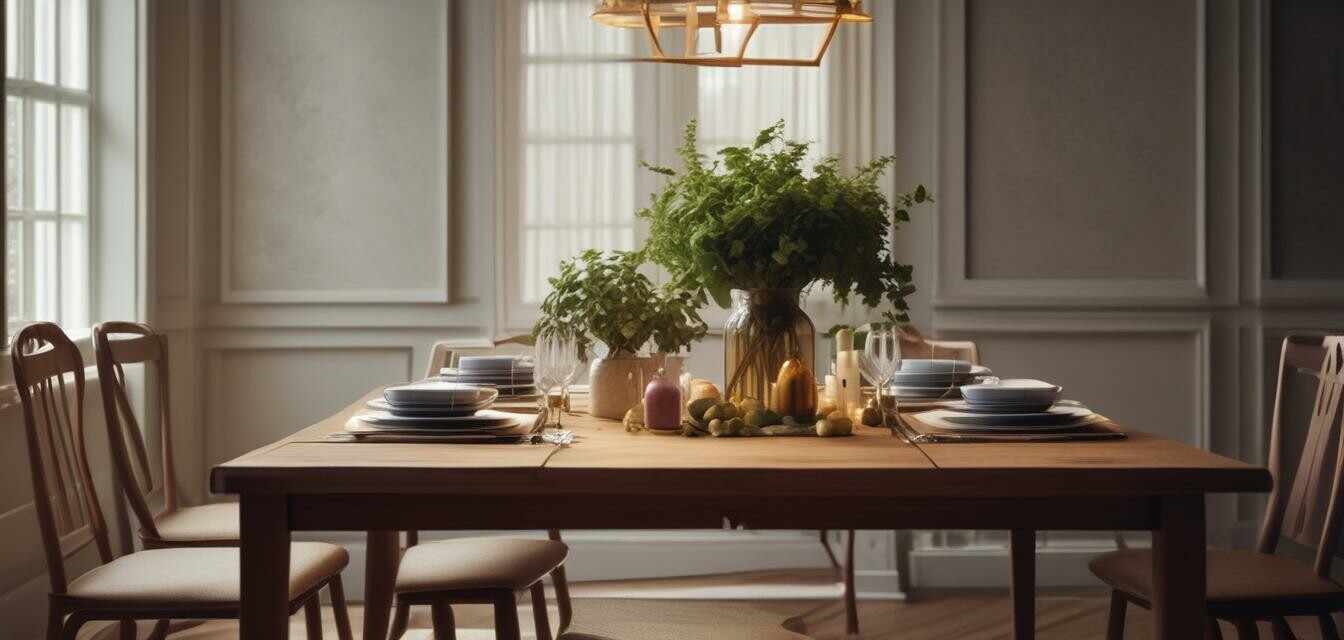
Essential features to look for in dining tables
Key Takeaways
- Determine the ideal size based on your space and needs.
- Choose materials that balance durability and aesthetics.
- Select a style that complements your existing décor.
- Consider functionality with features like extendable options.
- Evaluate the price and warranties available for your peace of mind.
Choosing the right dining table can dramatically enhance your dining experience and the overall ambiance of your home. With an array of styles, materials, and functionalities available, it’s crucial to know what features are most important for your specific needs. In this guide, we’ll explore the essential features to consider when selecting dining tables that match your lifestyle and décor.
1. Size and shape considerations
The size of your dining table is the first and most crucial factor to consider. Here’s a quick breakdown:
| Table Shape | Best For | Seating Capacity |
|---|---|---|
| Rectangular | Longer rooms, large families | 4-10 people |
| Round | Small spaces, intimate settings | 2-8 people |
| Square | Balancing rooms with equal space | 4-6 people |
| Oval | Mix of rectangular and round settings | 6-10 people |
Measure your available space and consider how many people you typically host. Choosing the right size ensures comfort during meals.
2. Material matters
Dining tables come in various materials, each with its unique appeal:
- Wood: Durable and classic, wood offers warmth and elegance.
- Glass: Gives a modern look; reflects light, making spaces feel larger.
- Marble: Luxurious and sophisticated, marble is ideal for a refined aesthetic.
- Metal: Sturdy and industrial, metal is perfect for contemporary designs.
3. Style and aesthetics
Your dining table should complement the overall style of your home. Whether you prefer contemporary, rustic, or traditional styles, the table plays a pivotal role in defining your space. Here are some popular styles:
- Traditional: Ornately carved and often made of solid wood.
- Modern: Sleek lines with minimal embellishments.
- Farmhouse: Features distressed wood for a cozy feel.
- Industrial: Emphasizes raw materials like metal and wood.
4. Functionality features
Consider how you use your dining table. Do you entertain often or require flexibility? Here are some functional features to look for:
- Extendable tables: Perfect for accommodating extra guests.
- Storage options: Tables with built-in shelves or drawers can save space.
- Height variations: Bar height tables offer a casual dining experience.
5. Price and warranties
Dining tables can significantly vary in price depending on size, material, and brand. It’s essential to set a budget before starting your search. Additionally, explore warranty options to ensure you are covered for potential damages or defects.
6. Maintenance and care
Consider the level of maintenance each material requires. For example:
- Wood tables may need periodic polishing and treatment.
- Glass surfaces should be regularly cleaned to prevent streaks.
- Marble should be sealed to protect from stains.
Pros
- Enhances aesthetic appeal of dining area
- Provides a functional space for dining and gatherings
- Variety of options to match personal style
- Increases home value if choosing quality materials
Cons
- Can be a significant investment
- May require regular maintenance depending on material
- Limited space may restrict available options
- Style may not appeal to everyone
Conclusion
In conclusion, choosing a dining table involves understanding your space, style preferences, and functional needs. By keeping these essential features in mind, you can navigate the options available and select a table that not only meets your needs but also serves as a centerpiece in your home.
For more insights on selecting the perfect furniture, check out our other buying guides or explore our dining room sets for inspiration. If you're looking to update your living space, browse our living room sets for stylish options.


